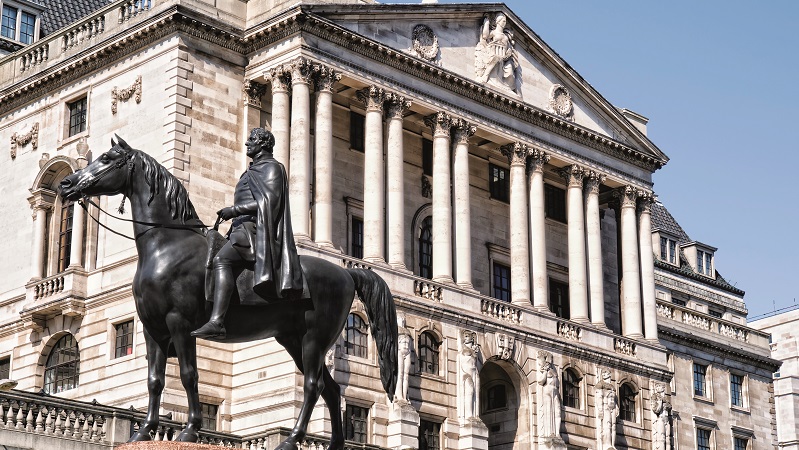CPI inflation surged to 3.2% in August, a leap that has left many questioning whether the Bank of England will be forced to step in and raise interest rates.
There are many reasons behind the 1.2 percentage point rise last month – increases in fuel, car and food prices are all major drivers, as are supply and demand issues and the costs of the Covid-19 pandemic to the economy.
However, with this being the biggest jump in inflation the UK has seen in almost a quarter of a century, markets are now pricing in the potential for hikes in the Bank of England base rate earlier than previously anticipated.
“With UK inflation reaching a nine-year high and seeing its biggest jump in 24 years, the focus now shifts to the Bank of England’s policy meeting next week, where the key question will be how this impacts the timing of the first rate hike,” says Mirabaud Group deputy director John Plassard. “The money market is now pricing in two rate increases in 2022 earlier than previously thought. While this would be a big tailwind for UK lenders, it would be a significant weight for companies in sectors like utilities and real estate that are sensitive to rising bond yields.”
He adds that an early move by the Bank of England could put pressure on the Federal Reserve and the European Central Bank to normalise their monetary policy in the face of inflation that is no considered to be a longer-term issue, rather than a short-term blip.
See also: ECB slows pandemic emergency bond-buying scheme but don’t call it tapering
Up, up, and away
In fact, the Bank of England has already said that it expects inflation to hit 4% before the end of the year, before falling back – a result of the impact of the Covid-19 lockdowns and supply and demand issues.
“Some of these trends aren’t going anywhere fast, and with warnings of prices rising, and supply chains creaking, there’s a risk some of this inflation is here to stay,” explains Hargreaves Lansdown personal finance analyst Sarah Coles. “There’s also the chance of possible wage rises as vacancies hit record highs, and when price and wages feed into one another, the only way is up for inflation.”
Edison Group equity strategist Alastair George agrees that higher inflation is more than likely here for longer than some expect.
“Today’s UK inflation data, while not a surprise to the market, is a reminder of the costs to the economy of Covid-19. Looking forward, we are becoming increasingly concerned it is the post-Covid growth spurt which will ultimately prove to be transient, while higher inflation could prove to be sticky.”
Business and investor impact
The relatively recent easing of Covid-19 restrictions boosted the majority of British businesses, but the latest inflation figures will see them proceeding with more caution as borrowing is likely to become more costly and, for the early-stage companies, a lot more difficult.
“It remains critically important that scale-up businesses, particularly in high-growth sectors such as digital technologies and life sciences, are supported as they will be at the very heart of economic growth as we create an economy fit for the twenty-first century,” says Deepbridge Capital managing partner Ian Warwick.
He adds: “Government initiatives such as the Enterprise Investment Scheme (EIS) have never been more important for helping entrepreneurs and innovators source the funding they require, whilst also offering private investors with tax incentives to develop UK-supporting private equity portfolios. With our EIS funds reaching record levels of funding in 2020/21 it is evident that there is considerable demand from investors and financial advisers alike to invest in early-stage UK companies which we believe will be at the forefront of our economic recovery.”
For investors, portfolios built for the medium to long term will likely fare better from the ups and downs of inflation figures than regular savers will.
“Inflation is the biggest threat to long-term financial security. Over the past 30 years, for example, inflation in the UK has resulted in an item costing £1 in 1991 costing £1.84 in 2021,” says The Orchard Practice chartered financial planner Joshua Gerstler. “Purchasing power has effectively almost halved. In short, looking for the best savings rate to earn an extra £3 a year is not the answer. The answer is a well-diversified portfolio of global equities. Over the long term, equities have always provided better returns than cash and inflation.”










